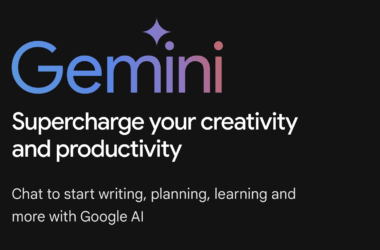For most of us, it is hard to imagine a world without a mobile phone – and, yet, the world’s first short messaging service (SMS) was only sent in 1992 and the first downloadable content sold to mobile phones – the ringtone – was less than 30 years ago, in 1998. Today, we can do so much more with our mobile phones than send an SMS or download a ringtone: these devices have in many ways become an extension of our brain – a tool used to literally store our memories.
The fourth industrial revolution (4IR), accelerated by the COVID-19 pandemic, has been driven largely by the convergence of digital, biological, and physical innovations and technologies such as artificial intelligence, genome editing, augmented reality, robotics, and 3D printing. The mobile phone industry saw the introduction of 5G, and its power and potential – 5G smartphones now account for more than 10 percent of shipments around the world, for example.
Creating smartphones for the fifth industrial revolution
But what advances will the fifth industrial revolution (5IR) bring about and how will this change how we interact and engage with one another? AI will become more powerful, and nanotechnology and genome sequencing could create innovative new medical treatments and revelations in medicine. Neural technologies will enhance our brains, while prosthetics and other implants may enhance our bodies. Augmented Reality (AR) and Virtual Reality (VR) could transform human characteristics – but will also be responsible for changing the way we communicate. Mobile phones as we know them won’t exist any longer, and instead will be augmented reality devices that people perceive the world through.
A move from digitisation to personalization
The fifth industrial revolution will bring forth innovation, purpose and inclusivity and we will see a deeper understanding and co-operation between people and machines, giving rise to a certain level of consciousness. Consumers will demand business services or practices connected to purpose – so businesses that play an active role in driving sustainability and embracing purpose will flourish.
In his Open letter to CEOs, Larry Fink, CEO of investment firm Blackrock, wrote “Purpose is not the sole pursuit of profits, but the animating force for achieving them. Profits are in no way inconsistent with purpose – in fact, profits and purpose are inextricably linked”. I believe that this sentiment will be the driving force behind whether companies succeed or fail in the future.
At HMD Global, the home of Nokia phones, purpose propels us: we can see how the power of technology improves our daily lives, and with technologies getting better and faster and fitting more seamlessly into our lives, it will enable us to do more and stay connected in a rapidly changing world. This is why we invest in developing technology that can forge that connection, and why we act on customer feedback to ensure a two-way relationship through our Nokia phones beta labs, Android Developer Programme and User Experience Programme.
Leading the race
This is what allows us to create innovative experiences on all our devices, and at good value. Innovations such as imaging algorithms and novel key component technology also make this possible. Earlier this year, for instance, we launched our biggest line up to date, featuring six new smartphones – making it one of the biggest arrays of new smartphones launched by a manufacturer in the history of the industry. Our approach to technology and business is human-first, which is reflected in our mobile phone range and our product innovations.
Our mission is to make high quality, long-lasting technology that is accessible and that our users love, trust, and keep for longer. We want people to love their phones, use them to make and store more memories and share special moments with loved ones. And we believe that the innovations that 5IR will potentially introduce in mobile technology will allow for humans to spend more time on important things like truly connecting with one another.
HMD Global, the home of Nokia phones is on Instagram and Facebook or visit the Nokia website.







